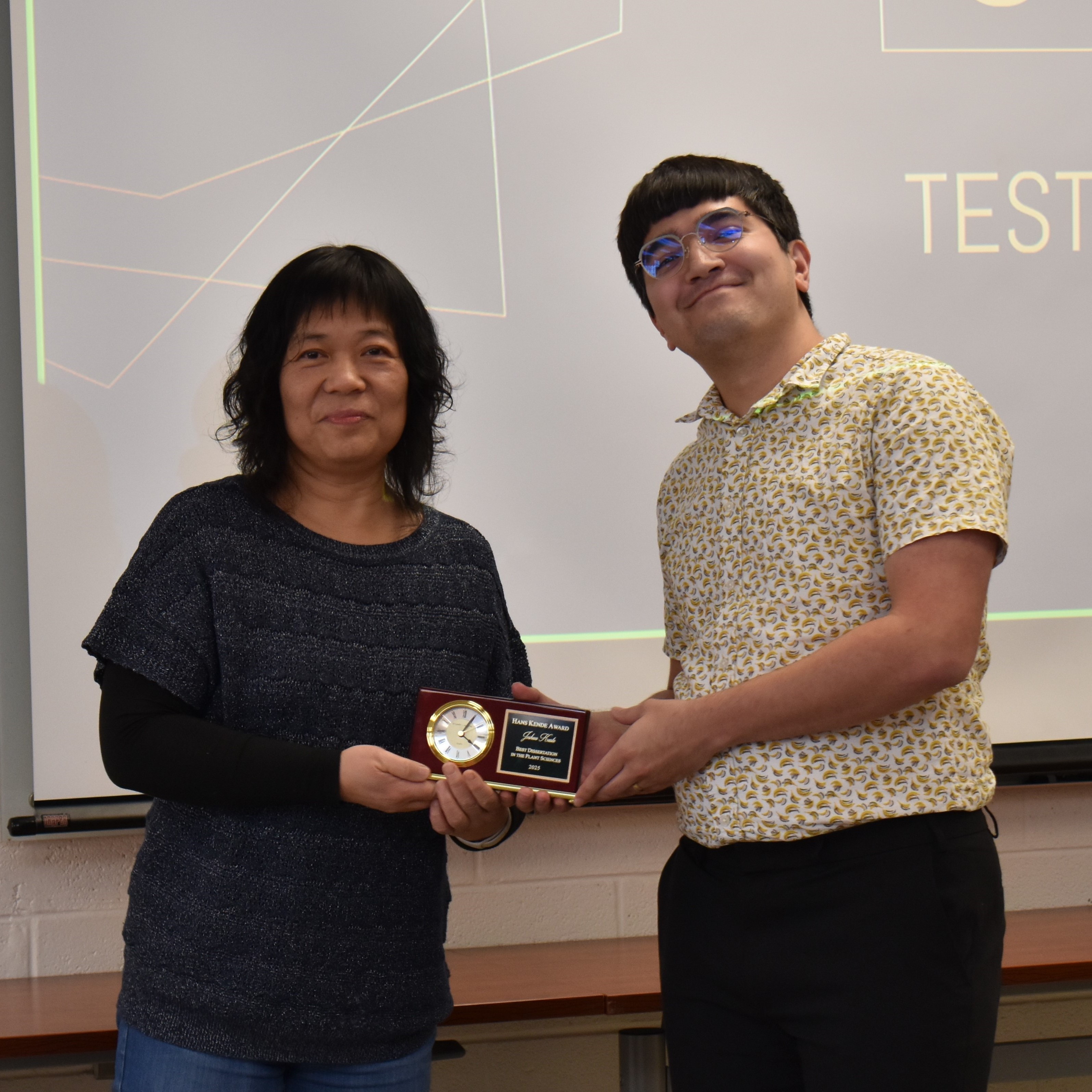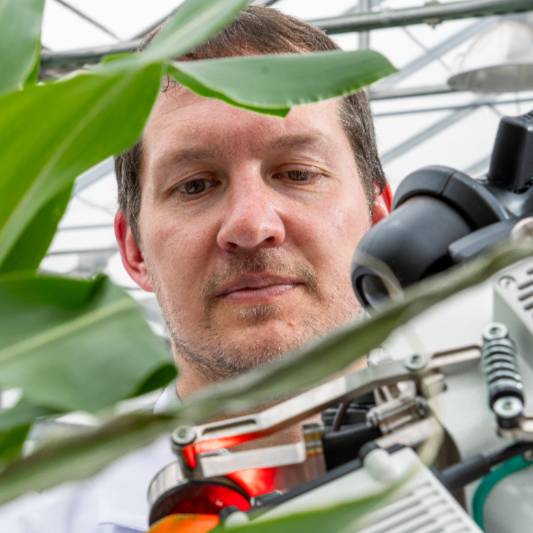Postdoc James Santiago receives PRI grant to study heat-sensitivity in tomato plants using emerging transcriptomics technology
James Santiago, a postdoc in Tom Sharkey’s lab at the MSU-DOE Plant Research Laboratory (PRL) and the MSU Plant Resilience Institute (PRI), alongside MSU faculty members Tom Sharkey and Robert VanBuren, were awarded an internal grant of $88,000 from the PRI for their research on heat-sensitivity in tomato anthers and pollen grains using single cell RNA-sequencing.
Many crop plants are sensitive to high temperatures. A few degrees above normal growth conditions and the reproductive cycle of the plants can be disrupted.
During pollen development, microspores, the precursor of pollen grains, rely on the tapetum cell layer for nutrients. As the microspores mature into pollen grains, the tapetum cells naturally undergo programmed cell death (PCD).
However, at temperatures a few degrees above normal, the tapetum cells undergo premature PCD while the microspores are still depending on those cells for resources. The pollen grains cannot get enough nutrients to be viable for fertilization when this occurs.

By Sean Weise
“The global temperature is going up,” said Tom, co-investigator of the grant and professor at the PRL. “I’ve grown tomatoes and seen this effect, and it’s astounding. If you raise the temperature by two to three degrees Celsius, you go from beautiful tomatoes to nothing. We need to make plants more resilient to high temperatures.”
A previous paper published by the Sharkey lab looked at sucrose allocation and the carbon metabolism within the anthers of bean plants. They discovered that, when exposed to high temperatures, not enough sucrose was delivered to the anthers, resulting in reduced support for antioxidant enzymes. This allowed for unchecked accumulation of reactive oxygen species (ROS) in anthers. This ROS accumulation triggered the premature PCD of the tapetum cells.
The goal of this new project is to identify genetic mechanisms of how ROS induces premature tapetum cell PCD at elevated temperatures by utilizing single-nuclei RNA sequencing to look at specific cell types within the anthers.
“The exciting part for me is the discovery,” James said. “We all eat plants. A lot of the plant parts we eat come from flowers that develop into fruits or seeds. Knowing that I can lay the foundation and help future scientists and farmers create heat-resistant plants is very exciting and rewarding for me.”
The PRI was created to bring together faculty from across the university to address global problems, such as plant resilience in the face of climate change. The funding provided by the PRI will allow for the researchers to begin this project and enable James, Tom, and Robert to collect preliminary data to acquire external funding later on.
“Historically, most research has focused on how a plant perceives and responds to stress at the whole plant, root, leaf, or flower levels, but each cell experiences and reacts to stress differently,” said Robert, co-investigator of the grant and assistant professor at the PRI. “This research will provide a snapshot into how different plant cells respond to stress and how these individual responses come together to build an emergent resilience to heat stress. The project is at the emerging frontiers of plant science research, and we are pushing the boundaries of what has been done in single cell genomics of plants.”



